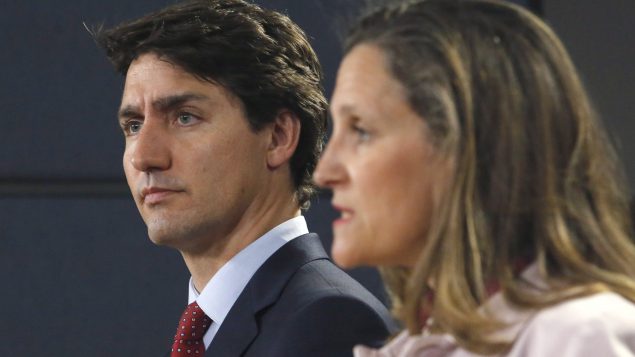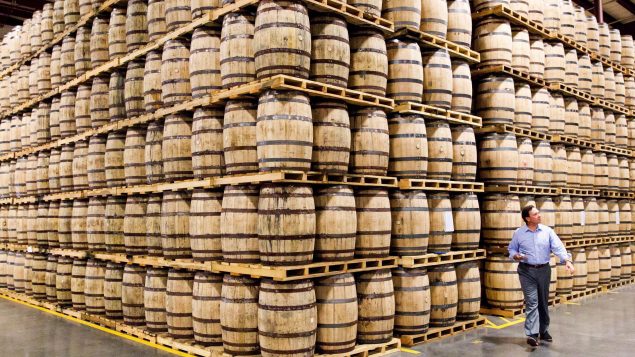At first sight the list of American products targeted by Canadian retaliatory tariffs that will come into effect on July 1 seems rather eclectic.
The items listed in Ottawa’s response to U.S. tariffs on Canadian steel and aluminum cover a wide range of products: from steel and aluminum to ball pens, sleeping bags, lawn mowers and bourbon whiskey.
But there is a clear logic behind the targeting of Hershey chocolate bars from Pennsylvania, orange juice from Florida and bourbon from Kentucky, experts say.
“This list was clearly drawn strategically to exert maximum pain politically for the president,” Maryscott Greenwood of the Canadian American Business Council told CBC News.
“The idea is, you look at a map of the congressional districts of the United States, you look at which members of Congress are in leadership positions and then you look at the big industries in those districts and then you draw up your list accordingly.”

Prime Minister Justin Trudeau and Foreign Affairs Minister Chrystia Freeland speak at a press conference in Ottawa on Thursday, May 31, 2018. Canada is imposing dollar-for-dollar tariff “countermeasures” on up to $16.6 billion worth of U.S. imports in response to the American decision to make good on its threat of similar tariffs against Canadian-made steel and aluminum. (Patrick Doyle/THE CANADIAN PRESS)
The Canadian counter tariffs of up to $16.6 billion represent the total value of 2017 Canadian exports affected by the U.S. measures, said Foreign Affairs Minister Chrystia Freeland Thursday.
“We are imposing dollar-for-dollar tariffs for every dollar levied against Canadians by the United States,” Freeland said.
These countermeasures consist of two lists of goods: one list that will be subject to a 25-per-cent tariff and a second list that will be subject to a 10-per-cent tariff.
They will remain in place until the United States eliminates its trade-restrictive measures against Canada, Freeland said.
Republican Senate Majority Leader Mitch McConnell, who represents the state of Kentucky, is likely to get an earful from whiskey producers in the state now that their product will be 10 per cent more expensive for Canadian buyers.
The same is true for Paul Ryan, the Republican Speaker of the U.S. House of Representatives. He represents a district in Wisconsin where there is significant cucumber growing industry.
But the Canadian countermeasures also target Democratic lawmakers.
Maple syrup producers in Vermont are likely to put pressure on Democratic Senator Bernie Sanders now that their product will be 10 per cent more expensive as well.
With files from Peter Zimonjic, CBC News







For reasons beyond our control, and for an undetermined period of time, our comment section is now closed. However, our social networks remain open to your contributions.